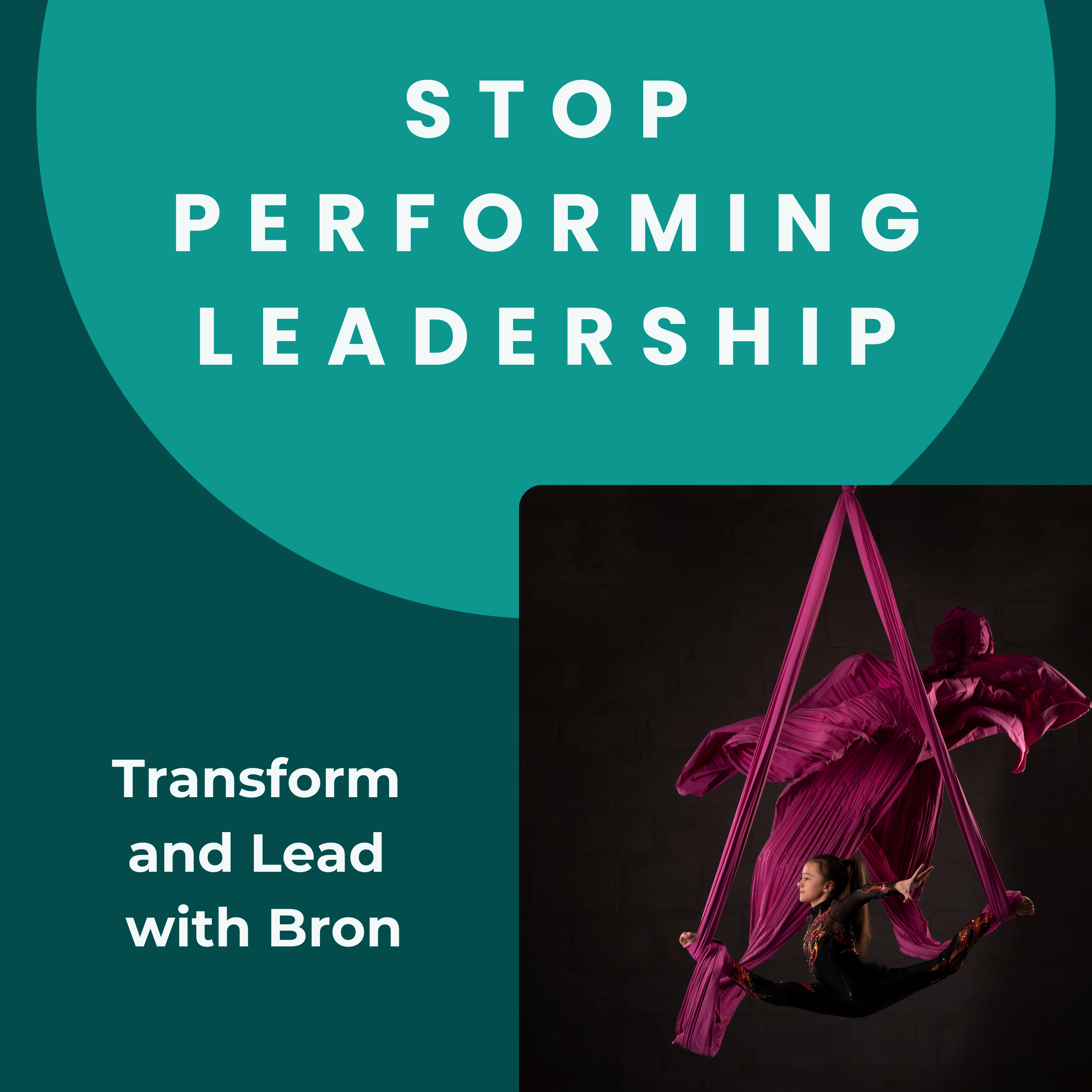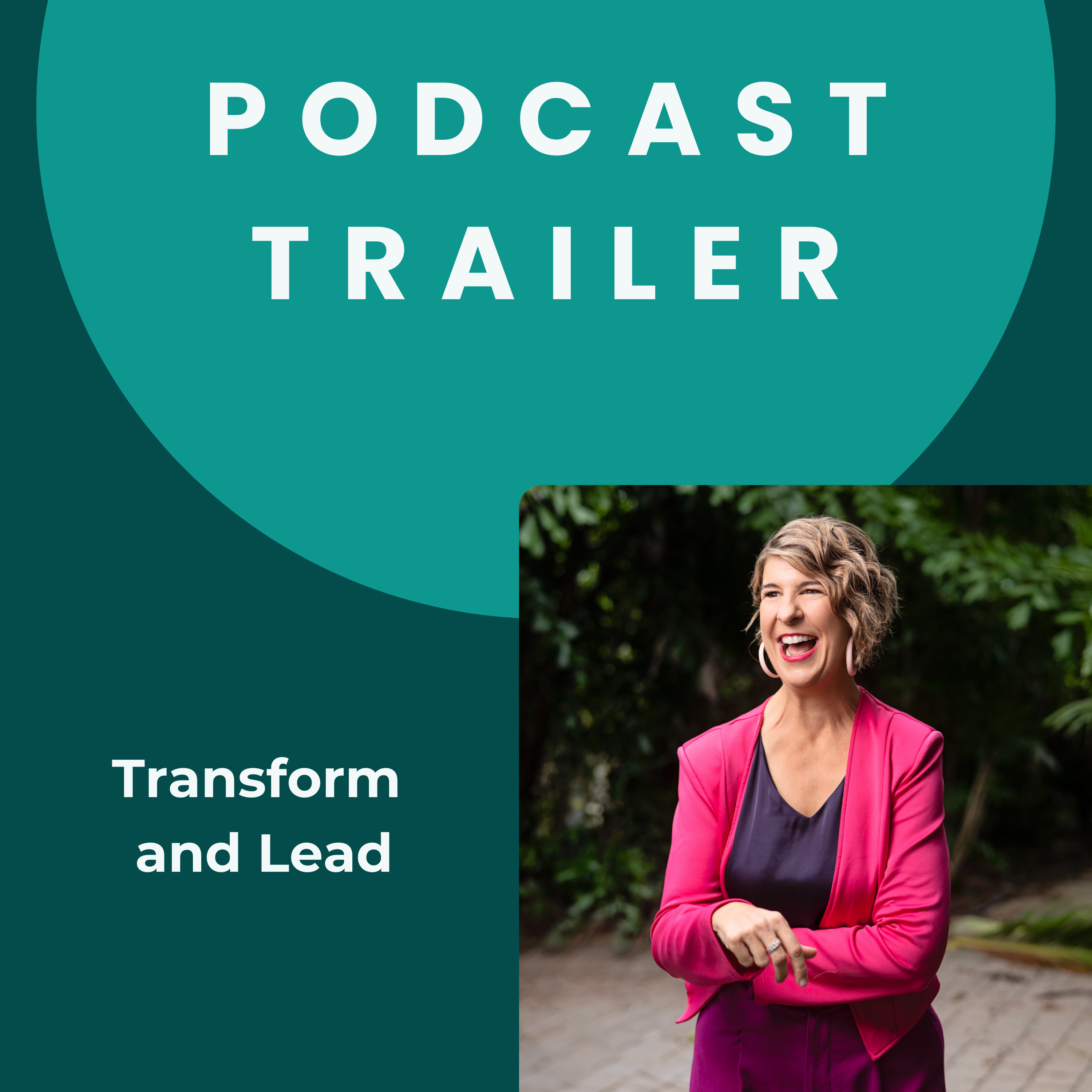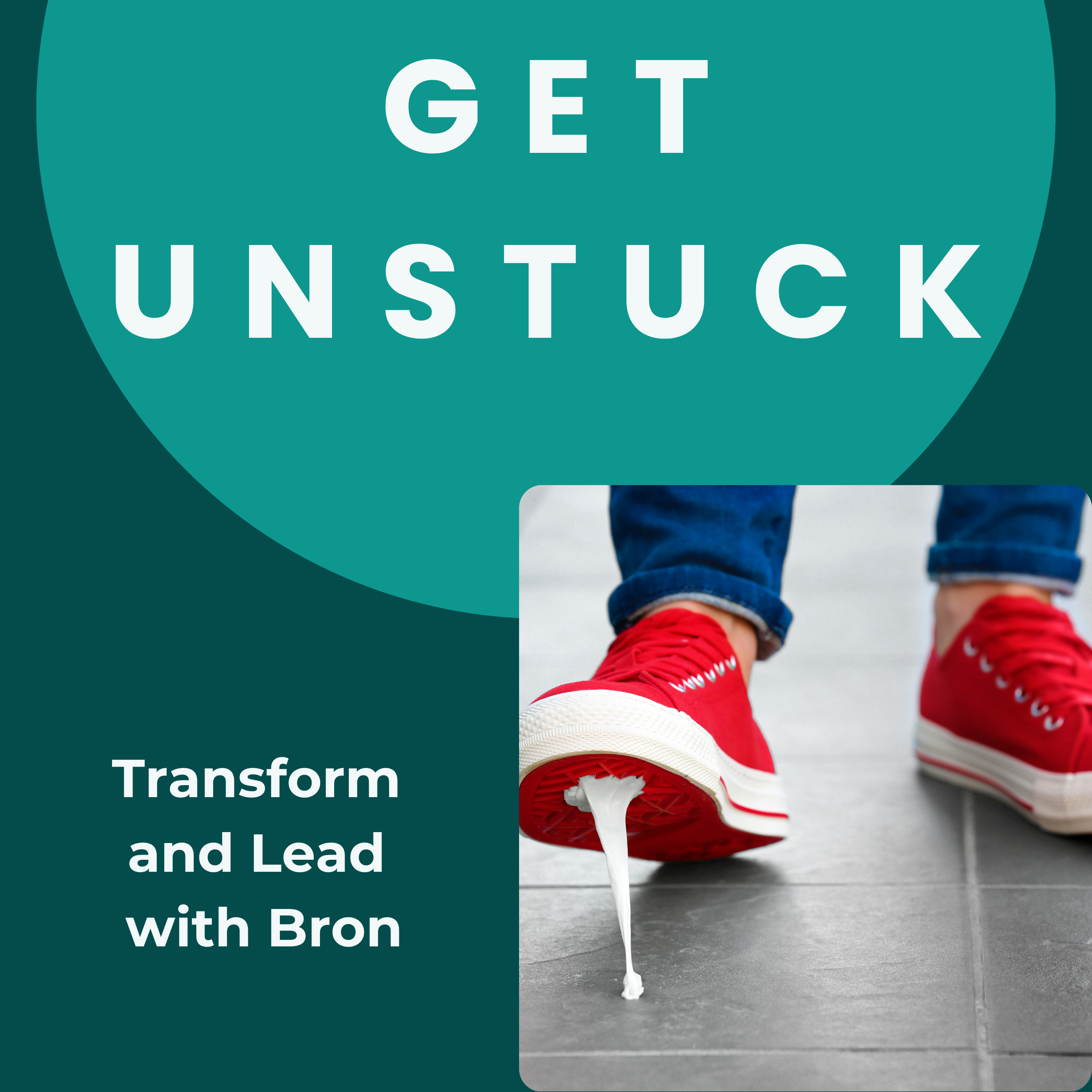[00:00:04] Welcome to Transform and Lead, the podcast for ambitious women in leadership who want to show up with confidence, clarity and compassion. I'm Bron Stephens, ex CEO, executive coach, leadership strategist, and your personal cheerleader for shaking off outdated leadership models and owning your ambition, femininity and power.
[00:00:21] Today we're diving into something that's been shaping leadership for far too long. Power over and why it doesn't work. Not for the people on the receiving end and not for you either.
[00:00:35] I coach a lot of senior women leaders who've been shaped by these models, and they're exhausted from trying to lead with empathy in systems that still reward dominance. They say things like, I care about my team, but they're taking the piss. I delegate, but then I feel like I have to chase everything I was told I'm too empathetic and need to be more ruthless.
[00:00:54] Power with is the antidote to this. It doesn't mean lowering standards. It means raising the bar on how we lead. And it looks like leading in alignment with your values, connecting your work to purpose, not profit or power, and noticing the gap about how you think you're showing up and how others are experiencing you. It's offering self compassion so you don't default to perfectionism or punishment. And when you lead in this way, you create organizational compassion. And I don't mean singing Kumbaya in team meetings. I mean having real conversations and connecting with empathy, offering support through clarity and curiosity and creating choices and naming consequences without shame.
[00:01:36] You then follow through consistently to create accountability. And you can still hold the bar to the highest standard. You still make the tough calls, but you're doing it with people, not to them.
[00:01:49] So here's my invitation to you. Start by getting honest about where power shows up in your leadership. Not just in your job title or reporting line, but in how you run meetings, how you give feedback, how you make decisions, and how you hold people to account.
[00:02:06] Anyone who worked with me early in my career can tell you that I wielded power like a mighty stick. And it didn't feel good to me and it certainly didn't feel good to my people.
[00:02:17] But it came from a desire to be right and it came from a good place in that I wanted nothing but the best and the highest standards and a belief that high levels of accountability deliver good results because they do.
[00:02:31] But you can have high levels of accountability and good results and a lot of care and empathy for people at the same time. And it's that nuance of the desire to have power with people instead of power over them.
[00:02:48] Here are some tangible steps you can take to move towards power.
[00:02:53] Get curious before you conclude if someone's struggling or underperforming or not living the values. Pause before reacting, ask what's getting in the way and create a space where people feel safe enough to tell the truth. You do that by asking good questions. And good questions are what's happened here? That means the results haven't been gained. What do you need to get better results next time? What about this situation has meant that you felt you couldn't perform?
[00:03:25] It opens up the space for people to have a genuine conversation about what's really going on next. Make your expectations clear and connected.
[00:03:35] It is not compassionate to be vague. It's actually kinder to be clear about what success looks like, why it matters, and what the consequences are if it doesn't happen.
[00:03:44] Not as a threat, but as an act of trust.
[00:03:48] So saying, I need you to understand that if your performance continues to be well below the bar of what we expect, there may be formal disciplinary measures that we'll start to take and I want to avoid that with you. So help me understand what you need to start to perform at the right level.
[00:04:06] Yes, it can sound harsh. Yes, people freak out when they hear formal disciplinary measures, but they freak out even more when they suddenly find themselves on a performance management plan that they never saw coming. Do people the honour. Do people the kindness of letting them know what the consequences are and let them know before those consequences arise. The third way to have power with is ask for feedback on how you're showing up. Choose a few trusted or just all of your peers and direct reports and ask what's one thing I do that helps and one thing that might be getting in the way.
[00:04:40] And then listen without defending your position.
[00:04:43] You'll learn much more than you expect by being able to open those conversations and hear what people are telling you to know where the gap is between what you think you're doing and what's actually happening for the other person. And finally, audit your leadership habits. So are you sending late night emails because you're overwhelmed? Are you avoiding tough conversations because they feel too hard? Are you over explaining to be liked or to soften the blow when really you just need people to do what needs to be done and telling people the why behind it might be more effective.
[00:05:16] Notice where these old habits are sneaking in and then gently course correct. And around all of this comes the practice of self compassion.
[00:05:25] You are not going to be perfect and you don't need to be. And the more generous you are with yourself, the less reactive you'll be with others. All of that self compassion and that self kindness translates to those around you as well as so take a moment to check in with your self talk when things go wrong. Would you say that to someone that you lead or you love? Probably not. So stop saying it to yourself because then you'll be able to show up with a lot more kindness and a lot more power with people without wanting to have power over them. And remember, power with doesn't mean soft or passive. It means connected, intentional and kind.
[00:06:03] It creates space for others to step up, speak honestly, and take real ownership because they know that you're walking with them, not above them. And when you start to lead with power with, you're not just changing how people see you, you're changing how they see themselves. They start to see themselves as people with their own locus of control and with full power of their own destinies and their own choices. And that is the difference. That's leadership that lasts. That's real power.
[00:06:36] Let's take power with one step further. Let's go full compassion. And let me be clear, this is not fluffy. It is foundational leadership, especially at the executive level, where your influence ripples across teams, departments and outcomes. And so if empathy is the door opener to trust and to connection and wisdom is what stops us rushing to conclusions, then accountability is the structure that holds it all together.
[00:07:02] And organizational compassion. That's empathy with care. And then it's wisdom through curiosity and it's action through accountability.
[00:07:10] This compassion is not just you being kind in your one on ones. It's about embedding systems, rituals and norms that reflect care with clarity for the individual and in the context of the organization.
[00:07:22] So what does that look like in practice? Here's a few examples for you. In a feedback conversation, instead of saying your performance is slipping, you need to lift.
[00:07:31] Try. I've noticed a few shifts in your work lately.
[00:07:34] Here's some examples of what I've seen. Can we talk about what's been happening and what support you might need to get back on track, you're not avoiding the conversation you're all in, but you're leading with curiosity and with care. Another example, decision making. Instead of making decisions in isolation and rolling them out as a fait accompli, create moments of shared input. Ask what haven't we considered here? What might the unintended impact be? Who do we need to bring into this conversation to get all of the answers we might need? You might start with the idea, but Opening the door to then get input creates ownership, it reduces resistance and it makes decisions more resilient. And my final example here, performance expectations. So instead of vague encouragement like just do your best, set expectations and follow through with real clarity.
[00:08:24] Here's what success looks like, here's why it matters, and here's what happens if we miss the mark.
[00:08:29] When you give people that absolute clarity, it is a genuine kindness for them and they then get that feeling of ownership and investment in it. And compassion without accountability isn't compassion, it's confusion. Ultimately you want to be normalizing learning moments. So if you get something wrong, name it. If someone else does, coach through it instead of criticizing. Growth isn't about perfection, it's about reflection. And compassionate leadership is rooted in empathy, wisdom and accountability. And that means it's not just effective, it's sustainable. Here's what I think high performing women really need to hear. You don't have to sacrifice yourself to lead well. You don't have to soften who you are or mimic traditional styles to be credible. And you don't have to choose between being liked and being respected.
[00:09:18] You can lead in a way that aligns with who you are and still get outstanding results.
[00:09:22] And organizational compassion and power with isn't about being liked, it's about being trusted. It's about building workplaces where people want to show up, take ownership and do brilliant work because they know what matters. And as you reflect on your leadership this week, ask yourself, where am I showing up with empathy? Where might I need more wisdom and patience before I act? And where do I need to reinforce accountability with clarity and kindness?
[00:09:47] You have so much more power than you think and the question is, how do you want to use it?
[00:09:57] If this episode landed with you, share it with a fellow leader who's ready to lead differently. And if you're curious about how to bring more power with into your own leadership, come buy
[email protected] or send me a DM on socials. I would love to hear your story. You've been listening to Transform and Lead. I'm Brom Stephens. Thanks for being here. And don't forget, you don't need to change who you are. Just own your ambition, femininity and power. See you next time.


